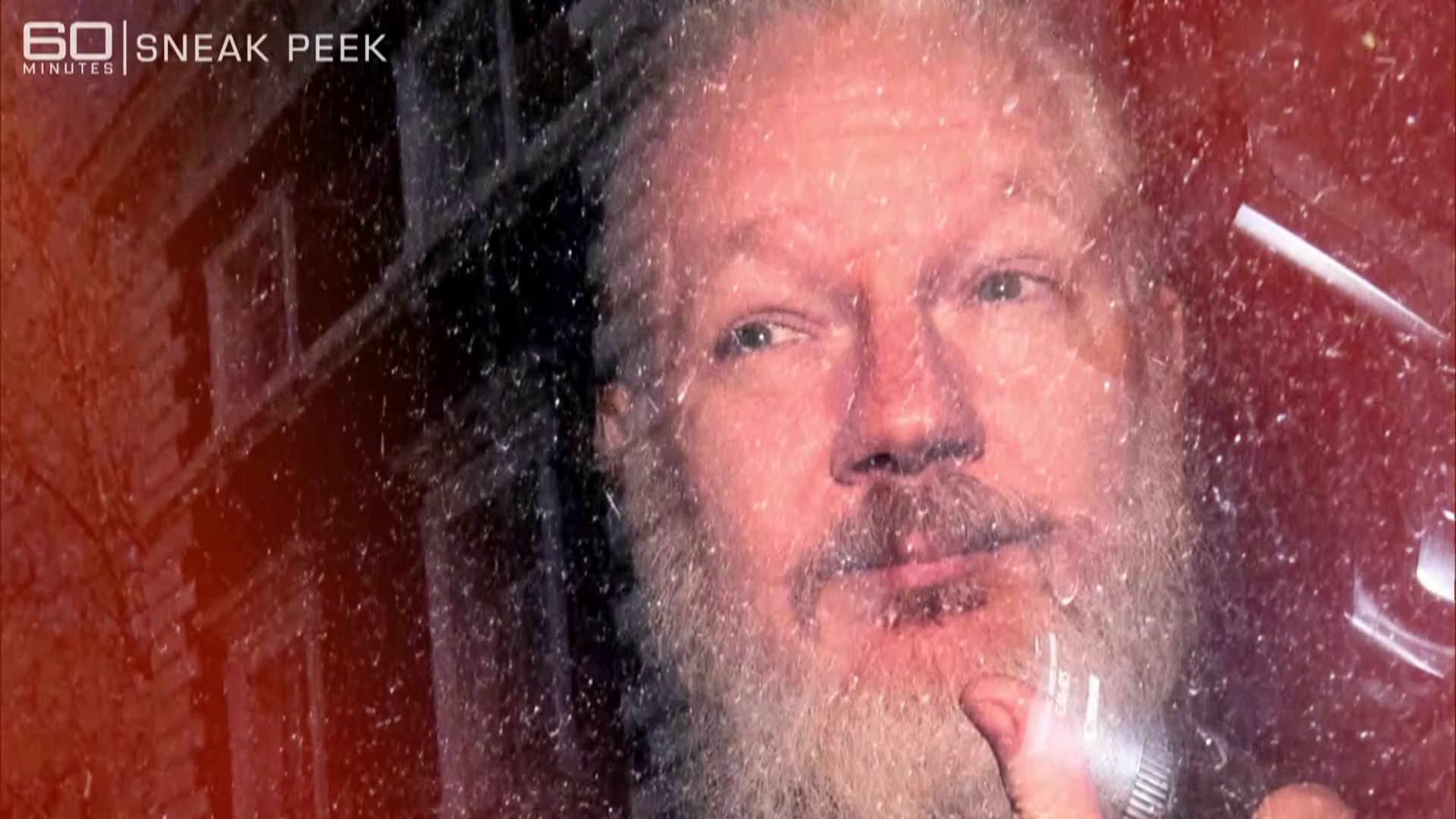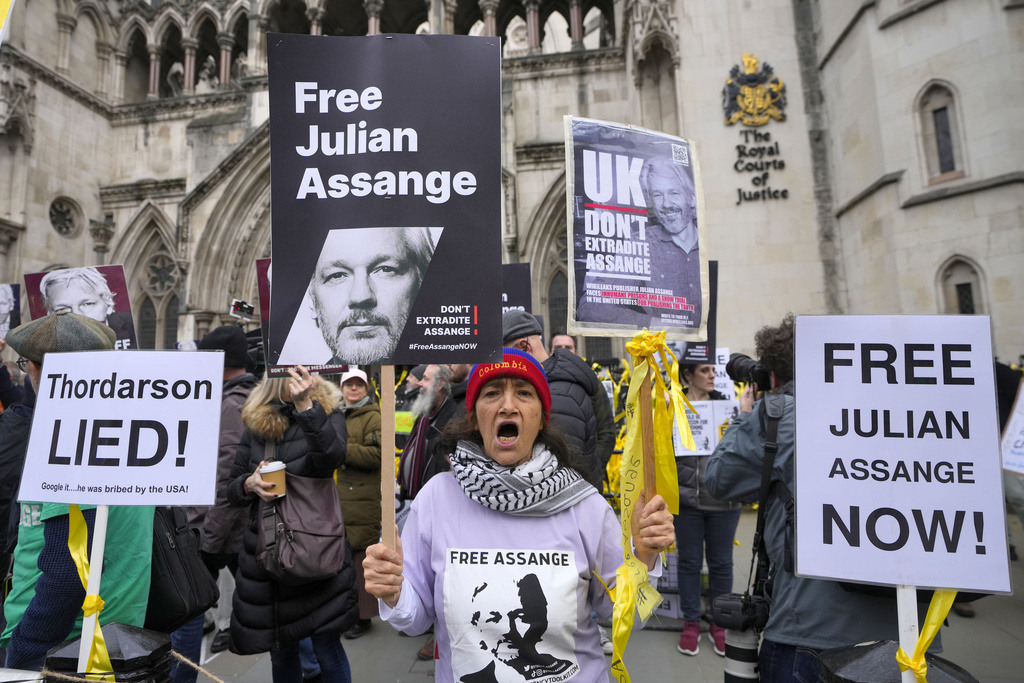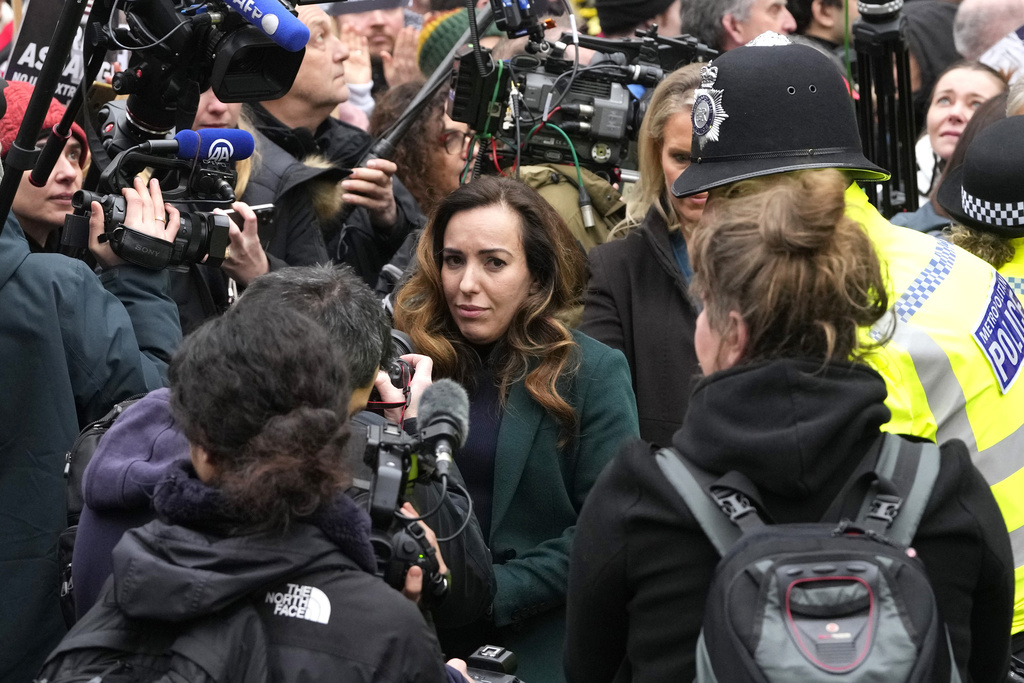Lawyers for the American government have argued before a London court why they think Julian Assange should face espionage charges in the United States, in response to a last-ditch bid by his defence to stop the extradition of the WikiLeaks founder.
Assange's lawyers are asking the High Court to grant him a new appeal — his last legal roll of the dice in the long-running legal saga that has kept him in a British high-security prison for the past five years.
The 52-year-old Australian has been indicted on 17 charges of espionage and one charge of computer misuse over his website's publication of classified US documents almost 15 years ago.
READ MORE: Flight attendant accused of trying to video record teen girl in airplane bathroom held until trial
American prosecutors allege Assange encouraged and helped US Army intelligence analyst Chelsea Manning steal diplomatic cables and military files that WikiLeaks later published, putting lives at risk.
Lawyer Clair Dobbin told the High Court on Wednesday that Assange damaged US security and intelligence services and "created a grave and imminent risk" by releasing the classified documents — risks that could harm and lead to arbitrary detention of innocent people.
Dobbin added that in encouraging Manning to hack into government computers and steal from them, Assange was "going a very considerable way beyond" a journalist gathering information.
Assange's supporters maintain he is a secrecy-busting journalist who exposed US military wrongdoing in Iraq and Afghanistan. They argue that the prosecution is politically motivated and he won't get a fair trial in the US.
Assange's lawyers argued on the first day of the hearing on Tuesday that American authorities are seeking to punish Assange for WikiLeaks' "exposure of criminality on the part of the US government on an unprecedented scale", including torture and killings.
Lawyer Edward Fitzgerald said Assange may "suffer a flagrant denial of justice" if he is sent to the US.
Assange's lawyers say he could face up to 175 years in prison if convicted, though American authorities have said the sentence is likely to be much shorter.
Assange was absent from court on Wednesday and Tuesday because he is unwell, WikiLeaks said.
READ MORE: Brisbane news: Dad held at knifepoint and told he would die during daylight home invasion
Stella Assange, his wife, said Julian had wanted to attend, but was "not in good condition".
Assange's family and supporters say his physical and mental health have suffered during more than a decade of legal battles, including seven years in self-exile in the Ecuadorian Embassy in London and the last five years in the high-security prison on the outskirts of the British capital.
His wife, who married the WikiLeaks founder in prison in 2022 — said last week that his health has deteriorated during years of confinement and "if he's extradited, he will die".
Supporters holding "Free Julian Assange" signs and chanting "there is only one decision — no extradition" held a noisy protest outside the neo-Gothic High Court building for a second day on Wednesday.
READ MORE: Martial arts teacher charged with murder over deaths of three people in Sydney
If judges Victoria Sharp and Jeremy Johnson rule against Assange, he can ask the European Court of Human Rights to block his extradition — though supporters worry he could be put on a plane to the US before that happens, because the British government has already signed an extradition order.
The two justices could deliver a verdict at the end of the hearing on Wednesday, but they're more likely to take several weeks to consider their decision.






